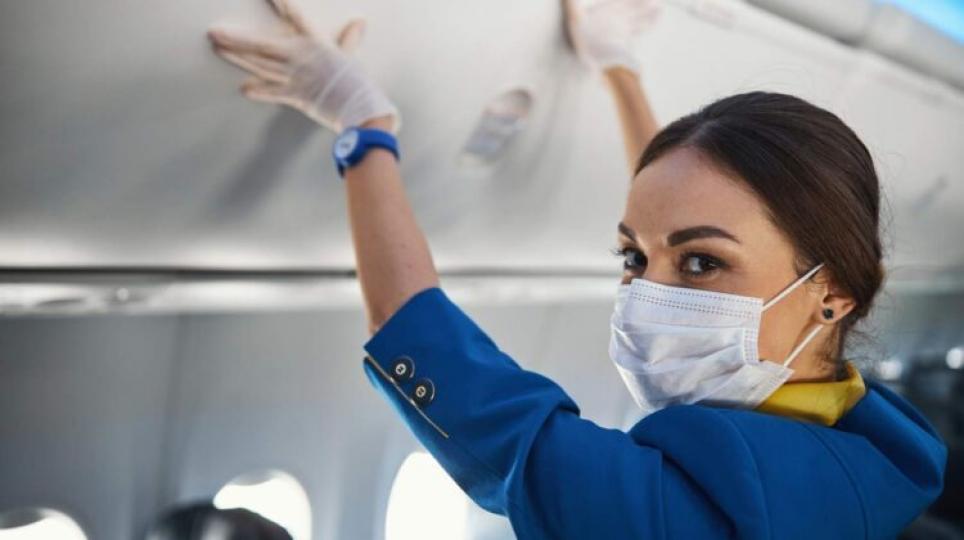
If you love to travel and are good with people, a career as a flight attendant may be just the ticket for you. There’s a lot more to this job than passing out drinks and reassuring nervous passengers.
Flight attendants play an integral role in the safety of all those who board their planes. They are trained professionals who are experts on their aircraft’s operation and are relied upon to stay calm in circumstances that can be extremely stressful. In exchange, they make a solid salary, benefit from remarkable travel perks, and are rewarded with tremendous job security, as the outlook for the career shows expected growth of 30% over the next ten years.
What Does A Flight Attendant Do?
Flight attendant responsibilities run the gamut from customer service to safety. Whether they work on commercial flights or on private craft, they are there to greet passengers, assist them with disembarking, serve refreshments, assist in ensuring passenger safety, and to attend to a wide range of safety procedures and precautions.
Duties and responsibilities include:
- Attending briefings with cabin staff prior to each flight
- Inspecting all safety equipment before each flight to ensure the equipment meets standards
- Ensuring that the cabin is clean and that an adequate inventory of food, drinks, and other supplies is available for passengers
- Preparing the cabin and passengers for takeoff and landing, including checking that overhead bins and under seat storage is safety compliant and that proper instructions are conveyed and adhered to
- Assisting passengers who require special help, including small children and those who are disabled
- Monitoring passengers for suspicious activity and responding to disruptions
- Assisting passengers during emergencies, including providing appropriate safety equipment, directing them to emergency exits, and extinguishing fires
- Responding to inflight medical emergencies and safety issues and report them to appropriate authorities
Flight Attendant Salary And Career Outlook
Flight attendants are paid on an hourly basis, with salary differentials that depend upon the employer or airline for which they work, tenure, education, being bilingual, and experience. While the Bureau of Labor Statistics reports that the median annual income for flight attendants is $59,050, actual earnings will vary depending upon both your hourly pay rate and how many hours you work.
One little-known fact about flight attendants is that they are paid based on actual flying time. This means that when you see a flight attendant walking through an airport they are essentially commuting: the clock does not start until the cabin doors have closed and it stops as soon as the cabin door is opened upon arrival. Of course, flight attendants also receive benefits such as vacation time and paid health insurance, as well as the ability to travel for free or practically free – even on a competitor airline’s planes.
In addition to income and great benefits, choosing a career as a flight attendant is a good choice for those looking for job stability. Though predictions are not a guarantee, the Bureau of Labor Statistics projects that the profession will grow by 30% over the next ten years as those in the field retire or move on to other occupations.
How To Know If You Would Enjoy A Job As A Flight Attendant
Though flight attendants were once viewed as glamorous waitresses in the air, the position entails tremendous responsibility for both the comfort and safety of air passengers. The perks of free travel to places near and far are offset by the stress of long hours and passengers who may be anxious, angry, or unruly. Those who excel at and enjoy the job the most have the following characteristics:
3 Steps To Becoming A Flight Attendant
Though every airline has its own requirements, there are certain minimum criteria for being hired as a flight attendant. These are less about educational background and focus more on individuals qualities such as:
- Being at least 18 years old
- Meeting certain physical requirements
- Passing a background check and pre-employment drug screening
The employment process is extensive and aimed at identifying candidates with the personality and characteristics that are important to the hiring team. Once hired, every candidate is required to attend a proprietary training session that teaches the nuts and bolts of what is expected. Though attendance is not paid, food and lodging are provided, and completion results in earning the requisite Certificate of Demonstrated Proficiency from the FAA.
How Long Does It Take To Become a Flight Attendant?
Becoming a full-time flight attendant able to bid on monthly assignments generally takes about one year.
Best Degrees To Become A Flight Attendant
Though becoming a flight attendant does not require a college degree, having an advanced education will be viewed favorably whether it is an undergraduate degree or an associate degree. This is particularly true if your degree like psychology, sociology, or marketing which helps you deal work with others.
Majoring or minoring in a foreign language also facilitates your ability to do your job. Any of these degrees may qualify you for a higher salary, promotion, or make you a more candidate for more desirable flight assignments.
Where Can I Learn More About Becoming A Flight Attendant?
Flight attendant organizations work to help flight attendants and those who aspire to become flight attendants. They provide invaluable information about educational and training programs, work to enhance flight attendant rights and working conditions, and provide other valuable resources. Some of these include:
